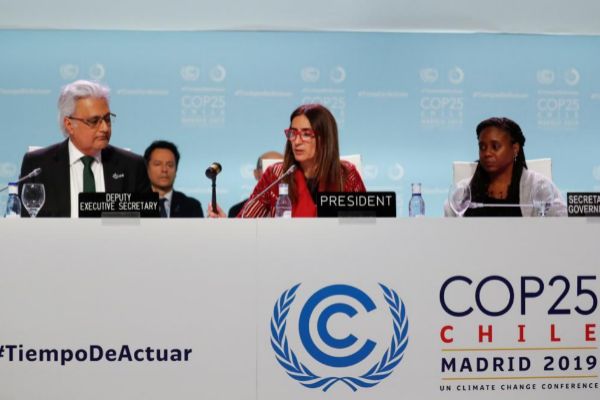The results of the climate summit that Madrid has received are insufficient to face the severe climate crisis and disappointing in relation to the expectations set. The XXV Conference of the Parties to the UN Framework Convention on Climate Change resulted in an in extremis agreement that urges countries to increase their emission cuts to prevent the temperature from rising more than 1.5 degrees at the end of the century . The general text agreed does not include the development of Article 6 of the 2015 Paris Agreement, which should regulate future CO2 emission rights markets. Consequently, it remains pending for the Glasgow summit to be held within a year. Conditioned by the lack of commitment of some of the main polluting powers , the representatives of the different countries have not lived up to the serious scientific warning about global warming.
It is hypocritical to require ordinary citizens gestures in relation to diesel or recycling while the international community still does not seriously, realistically and pragmatically address both the impact of the climate crisis on the ecosystem and the cost of industrial reconversion that entails economic transformation inherent in the ecological transition. Once the scientific community has determined the anthropogenic origin of climate change, total decarbonization on a horizon near 2050 constitutes a viable goal . This requires the effective commitment of the 200 countries, especially the US, China, India and Russia, which are the largest emitters of carbon dioxide, methane and nitrous oxide. It is possible to face this challenge without unjustified alarms and without concessions to hyperbole, but with the political and scientific guidelines necessary to embry the pernicious effects of global warming such as rising temperatures, desertification, melting of glaciers or damage to the oceans , which absorb up to a third of greenhouse emissions.
Special mention should be made of the management of the negotiations of Carolina Schmidt, Chilean minister of the branch and president of the summit, who was forced to ask for help from her Spanish counterpart, Teresa Ribera, to raise the ambition of the commitments to combat climate change in 2020. The COP25 organization, developed in record time in Ifema, can be considered a success. But the United Nations must rethink the operation of these types of conclaves . Madrid's has been the longest climate summit in history. It is not acceptable that, after 12 days marked by recreational activities -including the political instrumentalization of the activist Greta Thunberg by the left-, the different delegations need extensions to close an agreement that, for more inri, does not go beyond being a match of minimums.
According to the criteria of The Trust Project
Know more- Madrid
- Teresa Ribera
- Russia
- Paris
- Un
- India
- Greta Thunberg
- China
- Climate Summit
- Editorial
ImpressionCity of the climate: a delay due to the division
EditorialA fair ecological transition

